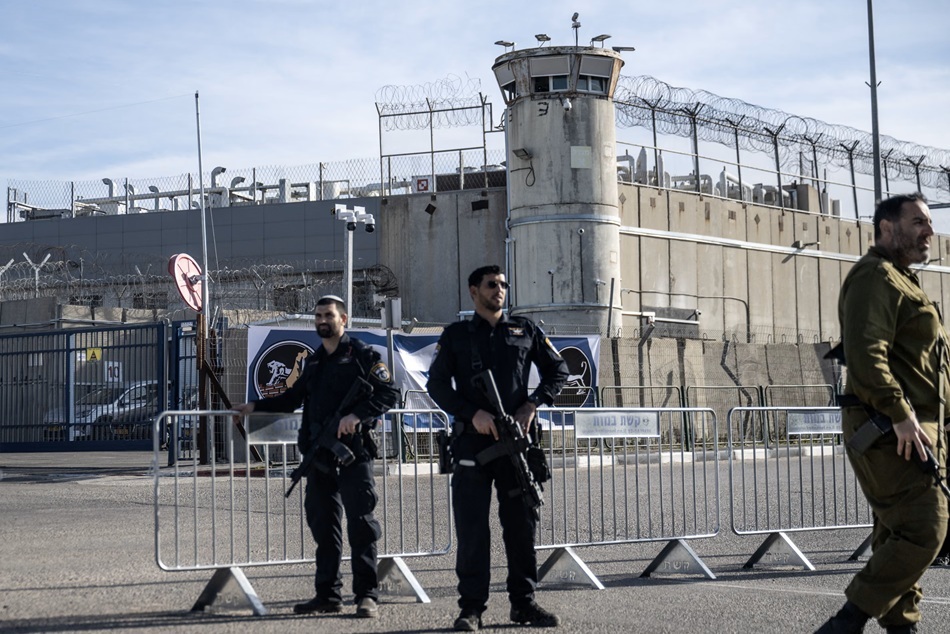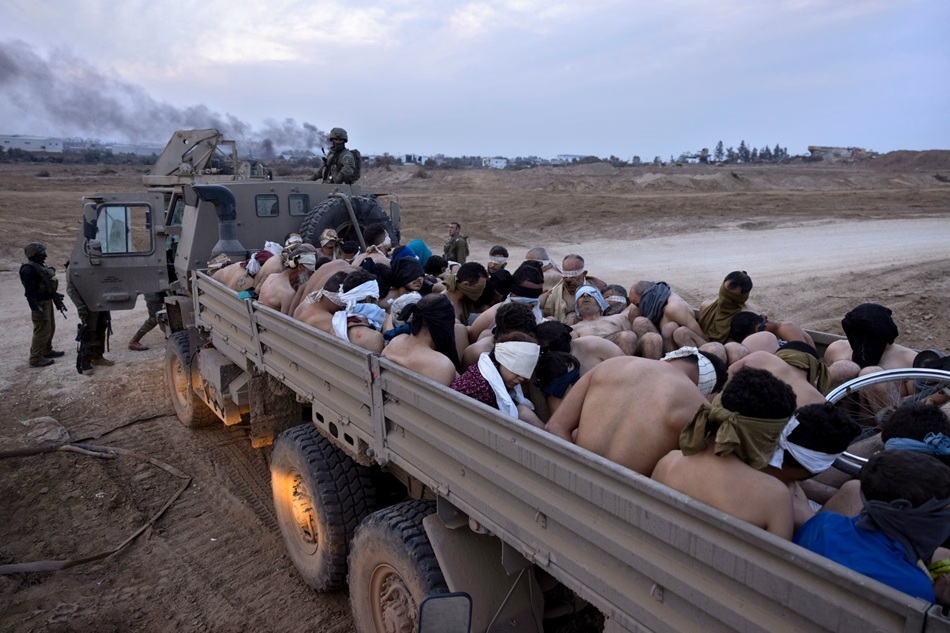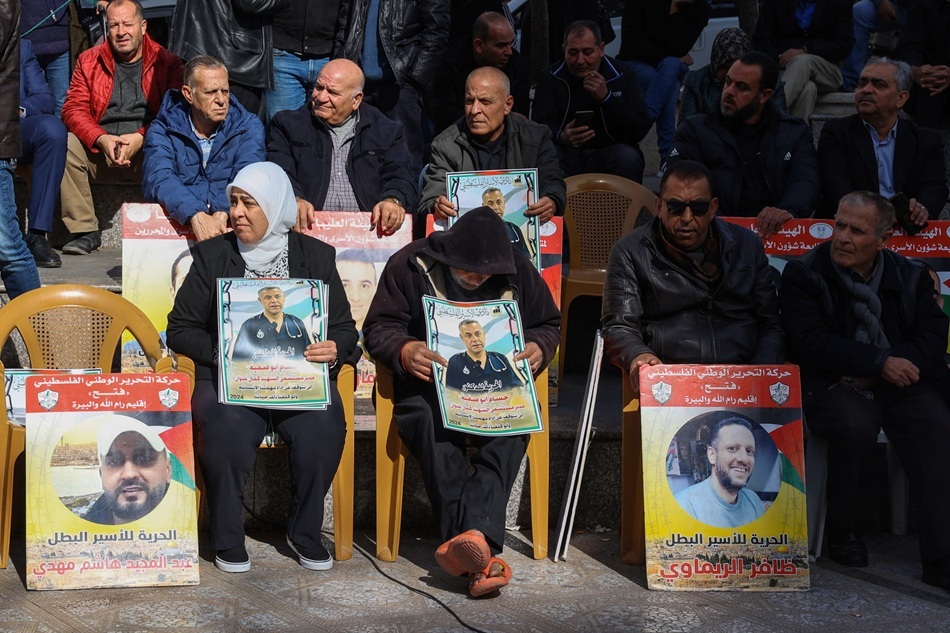Silent Massacre: The Forced Disappearance of Palestinians in Israel’s Detention System
TEHRAN (Defapress) - In the depths of a war that has drenched the Middle East in blood for two years, leaving thousands of families bereaved or torn apart, a silent and heartbreaking tragedy is unfolding in Israeli prisons and detention centers. Here, Palestinians are being deprived not only of their freedom but of the most basic right to life, facing the risk of death at any moment. Official Israeli reports up to November 2025 indicate that at least 98 Palestinians have died under torture or due to inhumane conditions in detention since October 2023. But everyone knows this number represents only a small part of the concealed reality.

In the first eight months of the war, on average, one person was martyred in detention every 4 days. This shocking statistic was obtained from freedom of information requests, forensic medical reports, and interviews with lawyers, families, and released prisoners. Israeli authorities provided comprehensive figures on prisoner deaths up to May 2024 (for the military) and September 2024 (for the prison administration), but have since remained silent.
Researchers from Physicians for Human Rights Israel have reported an increase of 35 more deaths in Israeli prisons after the official confirmation by the Zionist regime's authorities.
Naji Abbas, who handles prisoner files at the same organization, says, "This conclusion is incorrect. We are sure that dozens more have lost their lives, but there is no trace of them." This utter darkness keeps families in limbo, with no news of their loved ones' deaths nor hope for their survival.
Most victims are civilians from Gaza who were detained without formal charges or a trial. According to investigations by The Guardian, +972 Magazine, and Local Call, classified Israeli data shows that in May of this year, of the 65 Palestinians from Gaza who died in prison, only 21 were on the list of Hamas or Islamic Jihad fighters. This means the majority of detainees are innocent citizens trapped in the clutches of the usurping Zionist regime.

Itamar Ben-Gvir, the extremist Minister of National Security for the Zionist regime, openly advocates for reducing food rations and confining prisoners in underground cells without daylight. Released prisoners and whistleblowing soldiers speak of systematic torture, daily beatings, and even sexual abuse, practices that are no longer exceptions but have become unwritten law.
This disaster is not confined to security prisoners and also encompasses ideological prisoners from the occupied West Bank. Violence and torture have been normalized in Israeli prisons. The far-right National Security Minister, Itamar Ben-Gvir, proudly speaks of starvation-level food rations and underground prisons where Palestinian prisoners never see daylight.
Eyewitnesses, including former prisoners and Israeli army whistleblowers, report systematic violations of international law. This institutionalization of oppression has led to an increase in killings across at least 12 military and civilian facilities. In the decade before the war, only two or three deaths from torture occurred annually in Israeli prisons, but now this number has horrifically surged.
Naji Abbas warns, "This is a type of systematic killing, and it will continue because the abuse and killing of Palestinians is completely permitted and has turned into a kind of savage culture." So far, only one complaint regarding the beating of a Palestinian prisoner has made it to the courts of the Zionist regime, resulting in a seven-month sentence for the accused.
Even in cases of severe violence, including sexual violence, protests by right-wingers led to the arrest of a senior military lawyer, and the suspects are now demanding that the charges be dropped. In the past two years, no one has been charged for any of the killings. This impunity places every Palestinian at risk.

Dr. Adnan Al-Bursh, head of the Orthopedics Department at Al-Shifa Hospital, was martyred after four months of detention in Ofer prison. His cellmate says he was brought into the yard, covered in wounds and semi-naked, and left there. Yet, his body has still not been returned to his family. Dozens of others have been buried anonymously in the same way, or not buried at all.
In 21 reported cases, mostly involving Gazan citizens, Physicians for Human Rights Israel has been unable to match the details with media reports or testimonies from released detainees. Families may not even know about the deaths of their loved ones, as Israel has made tracking detainees difficult. The organization HaMoked says that over the past two years, it has approached the military with documents and photos for over 400 people, only to receive the response: "Such a person is not in our custody."
Even in high-profile cases, like that of Hussam Abu Safiya, the manager of Kamal Adwan Hospital in Gaza, who was detained during an attack by the Zionist regime in December 2024, the army initially denied his detention despite existing videos. Only media pressure led the Israeli army to admit to detaining Abu Seifiya.
This utter darkness, this organized concealment, this complete impunity sends a clear message: Any Palestinian who is detained might never return, and no one will be held accountable. Even after the temporary ceasefire and the release of about 1,700 people from Gaza, over a thousand are still being held under the same deadly conditions. The prison administration and the army claim "everything is according to the law," but documents, photos, testimonies, and corpses tell a different story.
This disaster is no longer just a violation of the law; it is the systematic slaughter of a nation. Death in the darkness, one by one, without a name, without a grave, without justice. Families go to sleep every night with one question and wake up every morning with the same one: Will there be news of him today, or never again?
And the world remains silent. It seems humanity has decided, this time, to close its eyes and cover its ears, so the sound of breaking bones and the sighs of the oppressed no longer reach anyone.
